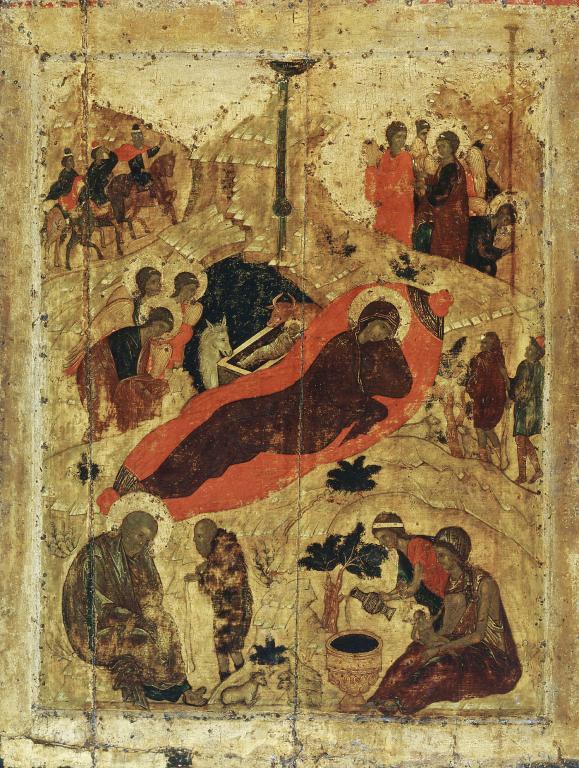
We invest so much energy cleaning up before and after holiday festivities. This year, we have also invested an exceptional amount of effort and energy sanitizing ourselves and things with which we come into contact. Perhaps there are even moments as we clean and sanitize during this holiday season in our secular age that we unconsciously yearn for the sacred domain of seemingly primitive times, reminiscent of Mircea Eliade’s book The Sacred and the Profane.
All this stood out to me as I have been reading through Leviticus the past few days. One might find it odd to be reading through Leviticus during Advent and Christmastide, but I find it most appropriate. Here’s why. There are no doubt sanitization grounds for some purity or cleanliness laws in the Bible. Still, I am all the more interested in how we might take to heart their import for purification of the heart and our need for Messiah Jesus who comes to earth—not to avoid sinners like me—but to love on us so purely that he cleanses us and makes us whole as we respond in faith.
Central to the Bible is the imperative to discern the difference between the holy and common, the sacred and profane. Leviticus 10-11 highlight its importance and provide the ultimate rationale:
You are to distinguish between the holy and the common, and between the unclean and the clean; and you are to teach the people of Israel all the statutes that the Lord has spoken to them through Moses…For I am the Lord your God; sanctify yourselves therefore, and be holy, for I am holy. You shall not defile yourselves with any swarming creature that moves on the earth. For I am the Lord who brought you up from the land of Egypt, to be your God; you shall be holy, for I am holy (Leviticus 11:10-11; 44-45; NRSV).
Consideration of the sacred and profane was also central to the growing tension and conflict between Jesus and the religious establishment. The establishment went so far as to view Jesus as unrighteous and unclean based on his internalizing of cleanliness and his Table fellowship with sinners. Regarding Jesus’ internalization of cleanliness, note Mark 7:
When he had left the crowd and entered the house, his disciples asked him about the parable. He said to them, “Then do you also fail to understand? Do you not see that whatever goes into a person from outside cannot defile, since it enters, not the heart but the stomach, and goes out into the sewer?” (Thus he declared all foods clean.) And he said, “It is what comes out of a person that defiles. For it is from within, from the human heart, that evil intentions come: fornication, theft, murder, adultery, avarice, wickedness, deceit, licentiousness, envy, slander, pride, folly. All these evil things come from within, and they defile a person” (Mark 17:17-23; NRSV).
Here it is worth noting what The Jewish Encyclopedia has to say about the cleanliness laws related to food and Messianic speculation:
Like the Jewish religious philosophers, the mystics have stated their speculations concerning the grounds of these laws. According to the cabalistic theory which makes the negative Sefirot the cause of the existence of evil in the world, the Zohar (Shemini, 3:41b) explains that the unclean animals originate from some of these negative Sefirot, and therefore they are forbidden as food but as with the arrival of the Messiah all will become purer and nobler, these animals will then be permitted as food (Yalḳ . Ḥ adash, Liḳ ḳ utim, 36,79). In this manner the mystics explained the idea, expressed in Midrash Tehillim to cxlvi., that in the future God will declare the unclean animals clean. This Midrash caused Abravanel and other Jewish scholars much embarrassment (see Buber, ad loc.), so that several of them did not hesitate to declare it a Christian interpolation but without reason, as similar opinions have been held and expressed in the remotest time (compare Antinomianism), and probably had their origin in pre-Christian times.
Regardless of what readers make of this Jewish scholarly debate, those like me who seek to follow Messiah Jesus must make sure we concern ourselves with purifying our hearts. As fitting as it is to clean up during the holidays (and throughout the year!), and as critically important as it is to remain diligent and sanitize to help safeguard against the pandemic’s spread, we must be all the more diligent to guard against the defilement of our hearts in view of Messiah Jesus coming to take up residence there. As the Christmas song goes, “O come to my heart, Lord Jesus, There is room in my heart for Thee.”
I discuss the sacred and secular calendars, including various Christian and Jewish holidays, in my latest book, Setting the Spiritual Clock: Sacred Time Breaking Through the Secular Eclipse. You can find a link to the sampler here.












